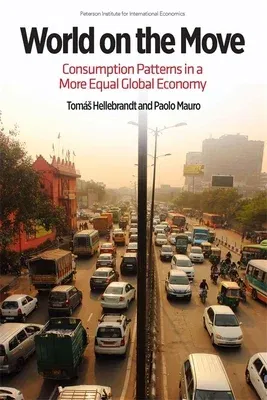Paolo Mauro
(Author)World on the Move: Consumption Patterns in a More Equal Global EconomyPaperback, 27 December 2016

Qty
1
Turbo
Ships in 2 - 3 days
Only 1 left
Free Delivery
Cash on Delivery
15 Days
Free Returns
Secure Checkout

Part of Series
Policy Analyses in International Economics
Print Length
166 pages
Language
English
Publisher
Peterson Institute for International Economics
Date Published
27 Dec 2016
ISBN-10
0881327166
ISBN-13
9780881327168
Description
Product Details
Authors:
Book Format:
Paperback
Country of Origin:
US
Date Published:
27 December 2016
Dimensions:
22.61 x
14.99 x
1.27 cm
ISBN-10:
0881327166
ISBN-13:
9780881327168
Language:
English
Location:
New York
Pages:
166
Weight:
272.16 gm